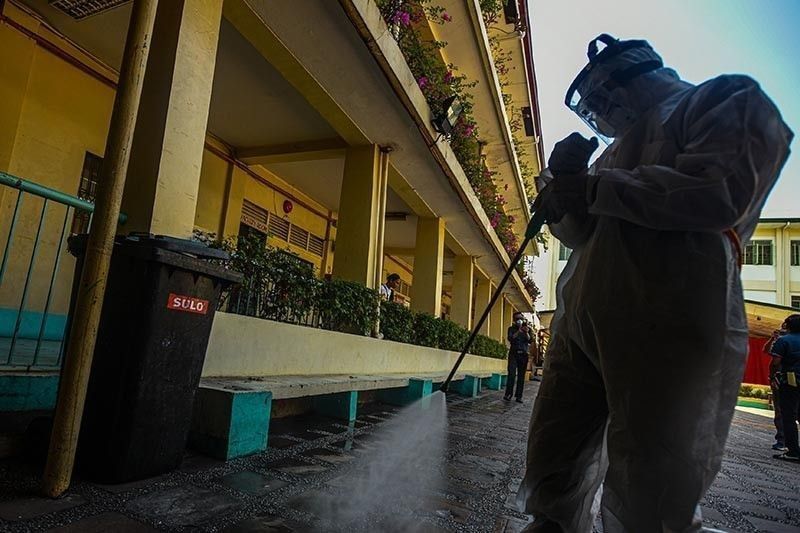Peasant group slams DepEd blended learning amid reports of suicide among rural youth

MANILA, Philippines — A peasant women's group on Wednesday slammed the education department's distance learning program in the wake of a suicide of a 19-year old junior high school student in Brgy. Fidel Surtida, Sto. Domingo town, Albay.
In a statement issued Wednesday morning, National Federation of Peasant Women (Amihan) chairperson Zenaida Soriano slammed the Department of Education's decision to resume classes in August without probing the situations of poor students in the country after months of enhanced community quarantine.
Before the implementation of the general community quarantine, President Rodrigo Duterte expressed support for the department's "blended learning" program, where learning materials could be made accessible through printouts, or the internet.
Those who do not have access to computers or the internet, Education Secretary Leonor Briones said, can also be reached via television or radio. She was also careful to point out that a majority of respondents in a DepEd online survey said they're capable of accessing the internet.
RELATED: No face-to-face classes as Duterte OKs DepEd's 'blended' learning proposal
“This is what we have been warning about, rural families being burdened by the ‘distance learning’ proposal of the DepEd, which is inappropriate to concrete conditions, insensitive and discriminatory against poor families. This is a suicide induced by the policies of the Duterte government,” she said.
According to a report by alternative media site the Philippine Examiner, the youth ended his life just shortly after stopping the suicide attempt of a friend who was also a student.
Before the incident, the two were stricken with anxiety over having to carry the burden of internet and data charges for their education, the boy's mother said.
“The exact meaning of all DepEd blabber about ‘distance learning’ to poor families is high cost of education, which the agency continues to neglect,” Soriano said.
"Poor families are hounded daily by the dilemma of where to find food for their next meal, and here comes the ‘educated but insensitive’ officials bragging about a system which is intensive on gadgets and costs," she added.
The peasant leader pointed out that all the modes included under blended learning involve the purchasing of gadgets, including smartphones, laptops, television sets and transistor radios, on top of the costs of internet connections, electricity and transportation.
Duterte has said he believes the DepEd's proposal is workable.
Amihan's statement also quoted one peasant leader from Isabela province who said: "Alanganin ang pamamaraan ng online, modular, telebisyon, at laptop kase hindi naman pare-pareho ang kalagayan ng bawat pamilya. Hindi ito napaghandaan ng mga bata lalo na dito sa probinsya, marami ang walang alam sa makabagong kagamitan. Sa tingin ko, maraming bata ngayon ang hindi makakakapag-aral dahil sa pinapatupad na ito ng DepEd.”
(It's uncertain if online, modular, television, and laptop can work because every family has different situations. Children are not particularly prepared for this especially in the province, many of whom are unfamiliar with modern equipment. The way I see it, many children today are unable to attend school because of DepEd's implementation.)
"DepEd officials are trying to put a square peg on a round hole," Soriano said. — Franco Luna
- Latest
- Trending





























